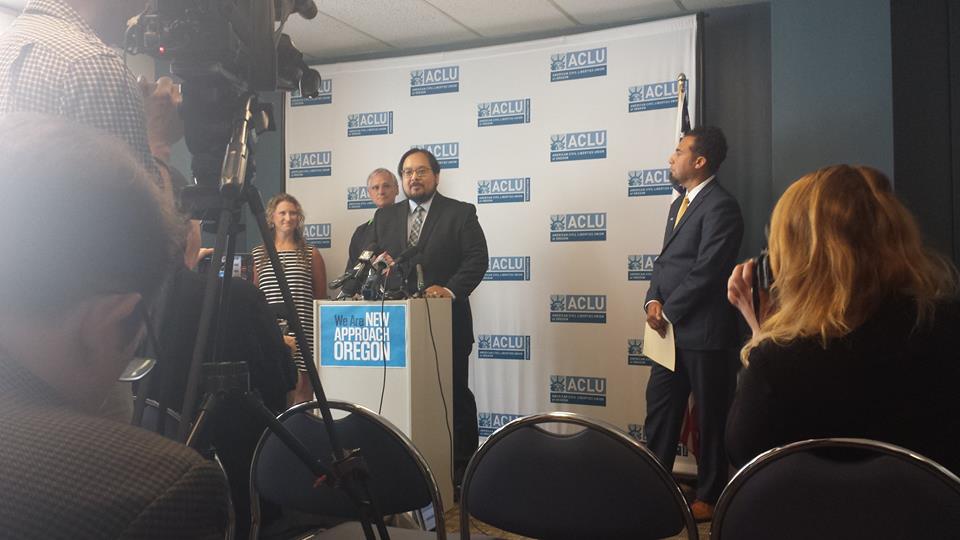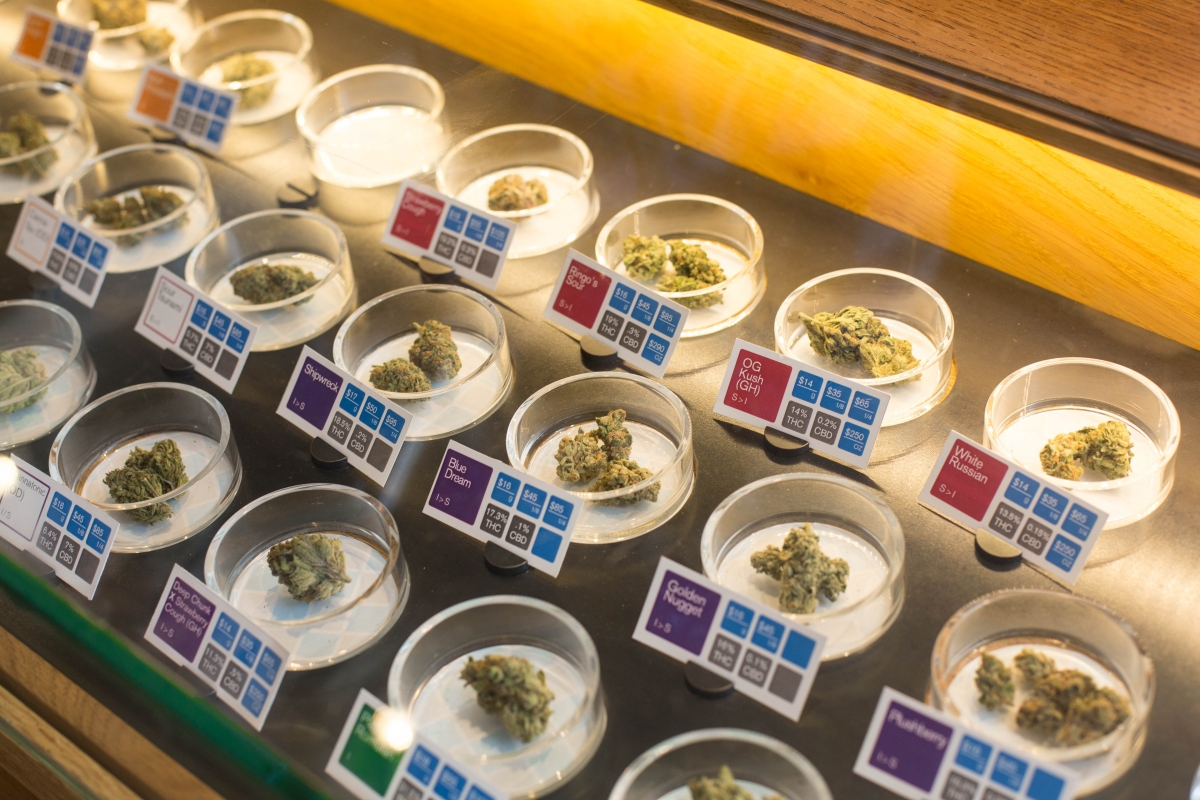The 2015 Oregon legislative session is in the books as the Legislative Assembly adjourned Sine Die July 6, at 6:04 PM this evening. It has been an eventful legislative session for the Oregon cannabis community, with some good changes to our marijuana laws, some bad, and some ugly. The most sweeping piece of legislation was House Bill 3400, which altered the voter-approved Measure 91 legalization initiative in key ways while also impacting the Oregon Medical Marijuana Program (OMMP) as well. House Bill 3400 passed both chambers of the legislature handedly with broad bipartisan support and was signed into law by Governor Kate Brown.
A breakdown of House Bill 3400:
The Good:
- Unlawful delivery and unlawful possession: reduced from a Class C felony to a Class A misdemeanor.
- Unlawful manufacturing and unlawful delivery to a minor: reduced from a Class B felony to a Class C felony.
- Unlawful possession by a minor of more than 8 ounces of usable marijuana; more than 16 ounces of solid marijuana products; or more than 72 ounces of marijuana in liquid form: reduced from a Class C felony to a Class A Misdemeanor.
- Retroactively improving the record of past marijuana offenses. Those convicted of harsh punishment in the past may be set aside their old convictions to match the lower classification.
- Expungement of convictions for unlawful manufacturing and delivery to a minor: changed from ineligible for expungement to eligible after 3 years.
- Possession limits from medical growers increased: 12 pounds per plant for outdoor growers, 6 pounds per plant for indoor cultivators.
- Medical growers may be reimbursed for all of the costs associated with the production of marijuana, instead of just supplies and utilities.
The Bad:
- Starting on March 1, 2016, no residential grow site within city limits may cultivate more than 12 mature plants. This effectively reduces the number of patients at two. Previously every grower could cultivate for four patients (24 mature plants) and there wasn’t a limit on how many growers could be listed at each grow site. Grow sites growing more than 12 plants in urban residential areas as of January 1, 2015, are grandfathered up to 24; sites growing more than 48 in non-urban residential areas are grandfathered up to 96 plants.
- Starting on March 1, 2016, no non-residential grow site may cultivate more than 48 mature plants. This effectively reduces the number of patients at these grow sites to 8.
- Potential inspections from the Oregon Health Authority that can infringe on people’s constitutional rights to privacy in their home.
- Growers must report plant numbers, harvest totals and all disbursement to the OHA.
- Local tax option of 3% is also contrary to the will of Oregon voters and will push the price of cannabis up higher, hurting the ability for the regulated system to compete with the unregulated system.
The ugly:
- Hundreds, if not thousands of sick and disabled patients will lose their grower and supply of medicine due to the new grow site plant limits. Many growers will lose the ability to cultivate for as many patients do to new limits being put in place and a lot of growers will balk at the new inspection and reporting requirements. If patient plant numbers weren’t limited, compassionate growers would be able to swoop up those patients; but, because of the bad provisions in HB 3400, too many patients that lose their growers will now suffer.
- Cities and counties that didn’t support Measure 91 with at least 45% of the vote can ban medical marijuana dispensaries as well as retail , retailers, growers and processors without a vote of the public. This local banning provision is contrary to the will of the voters that passed Measure 91 and is a bad policy that will only hurt patients’ safe access to medicine and the state’s attempt to curtail the unregulated market.
Senate Bill 460, approved by the Oregon Legislature, awaits Governor Kate Brown’s signature. If signed by Governor Brown SB 460 will allow existing medical marijuana dispensaries to sell 7 grams of flower to adults over the age of 21, from October 1, 2015, to December 31, 2016. Non-patients will not be able to by other marijuana products, such as concentrates, extracts and infused edibles. Non-patients will be able to purchase marijuana tax-free until January 4th, 2016, then a 25% retail tax kicks in; patients will continue to be able to buy medical marijuana tax-free.
Senate Bill 844, has been passed by the Oregon Legislature and now awaits Governor Brown’s signature. House Bill 844 applies the same expungement provisions that adults enjoy to juveniles; establishes a medical marijuana research task force; prohibits Oregon hospitals from denying transplants solely because of patients’ OMMP status; allows for hospice and residential care facilities to be added as an additional caregiver for patients; and adds the diagnosis of “a degenerative or pervasive neurological condition.” The adding of neurological conditions allows patients with Parkinson’s, ALS, lyme disease and even autism to qualify as an OMMP patient.
It was a shame that the OMMP was altered unnecessarily before Measure 91 was implemented and that M91 was amended in some unfortunate ways this legislative session. However, as it often is for the cannabis community, it was two steps forward and one step back this legislative session. Thousands of nonviolent marijuana law offenders will have their lives greatly improved do the the changes and Oregon will start creating jobs and generating revenue earlier than expected. Also, more Oregonians will be able to qualify for the state’s medical program and OMMP patients will no longer be denied medical transplants. Stay tuned to Marijuana Politics as the Oregon legislative session ends and for future alerts and notices as we work to protect and improve Oregon’s marijuana laws in the upcoming years.





















